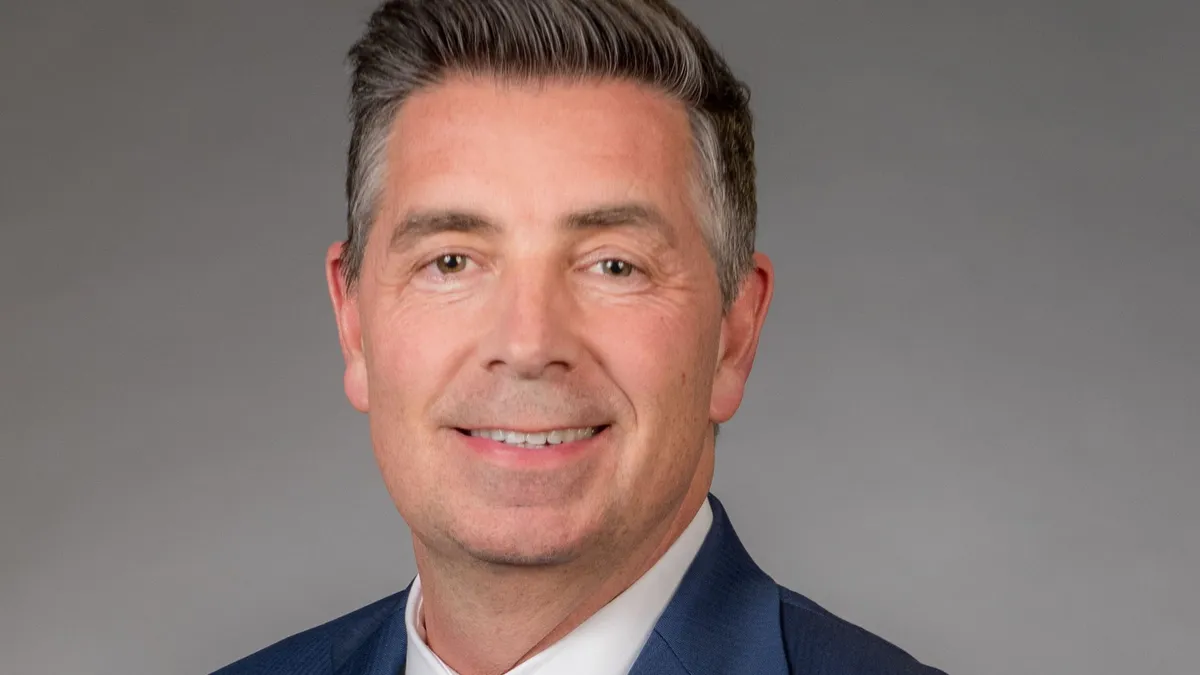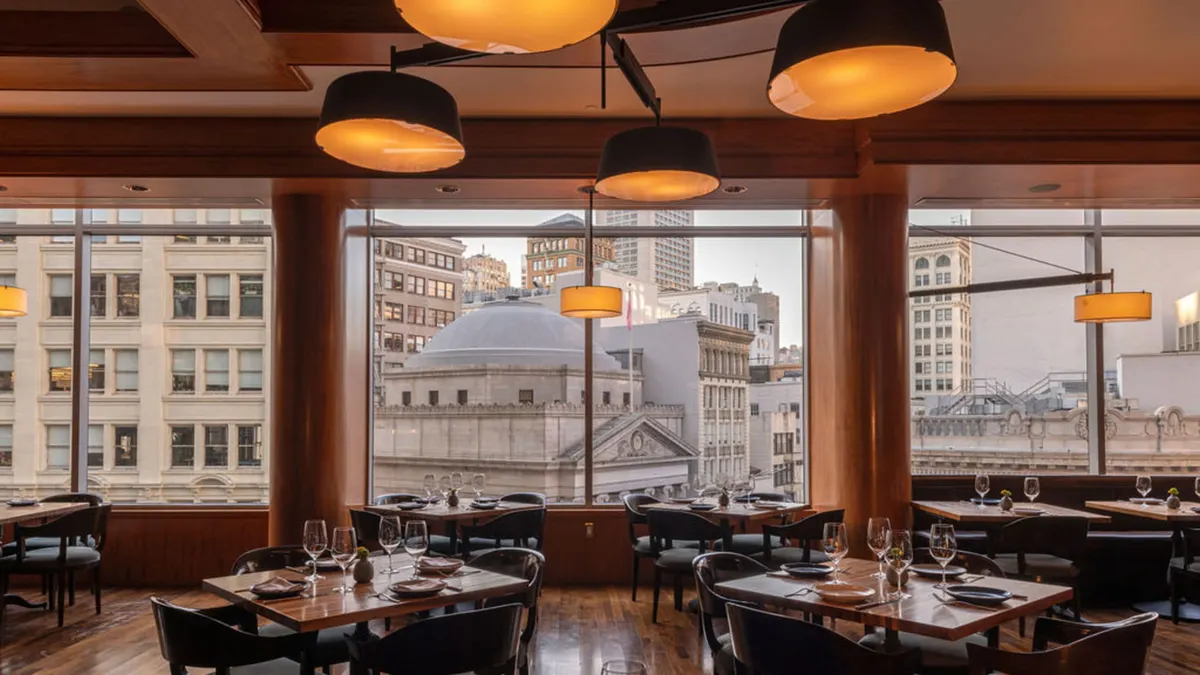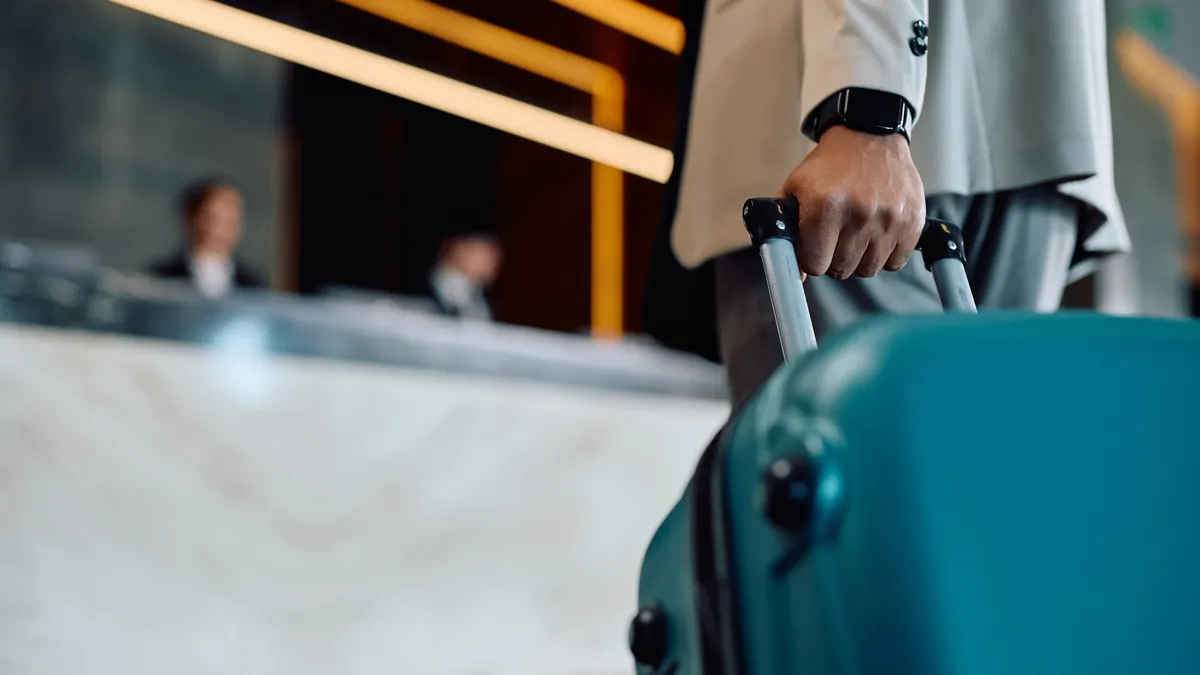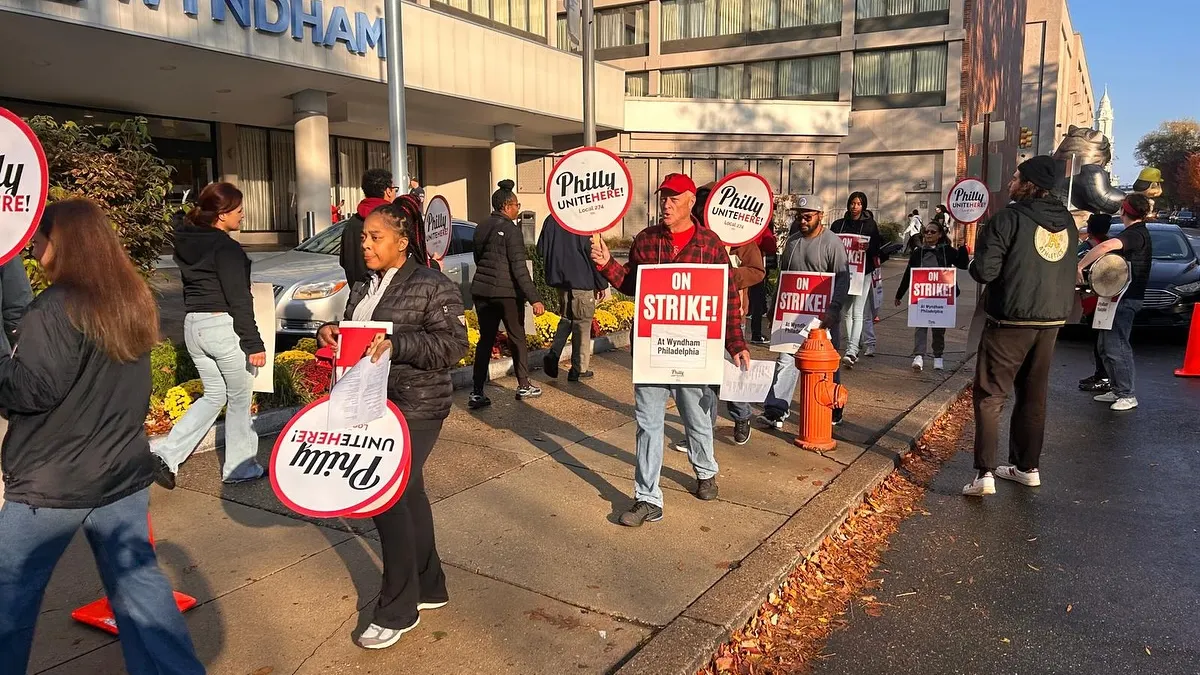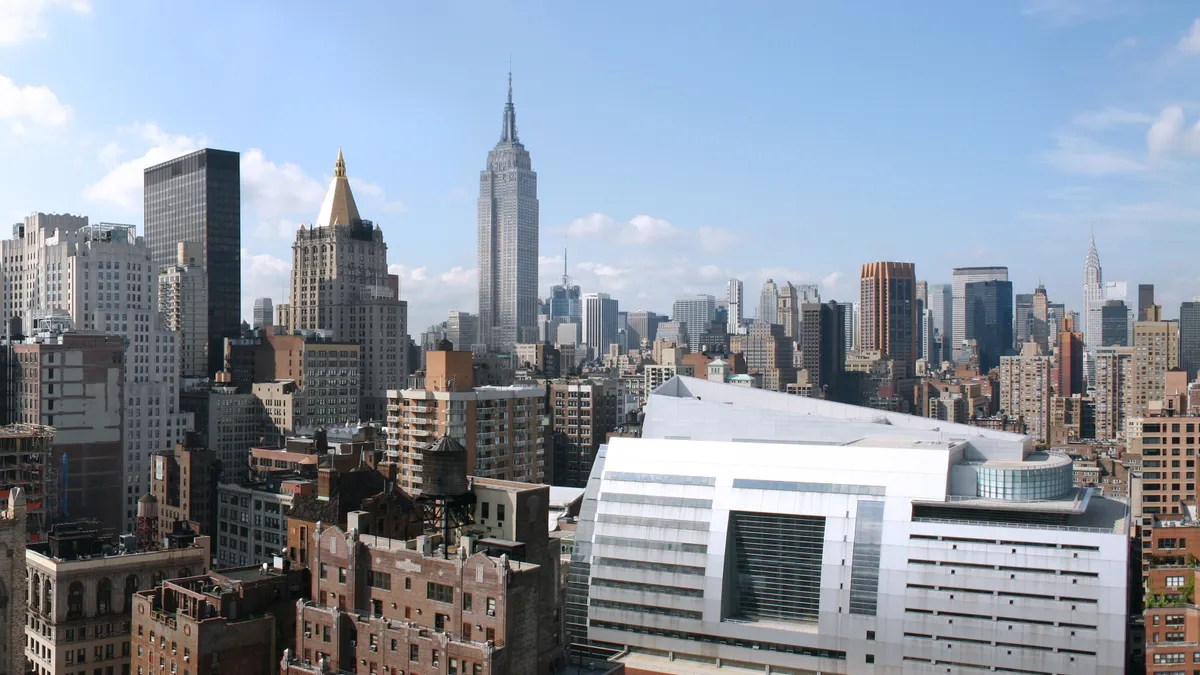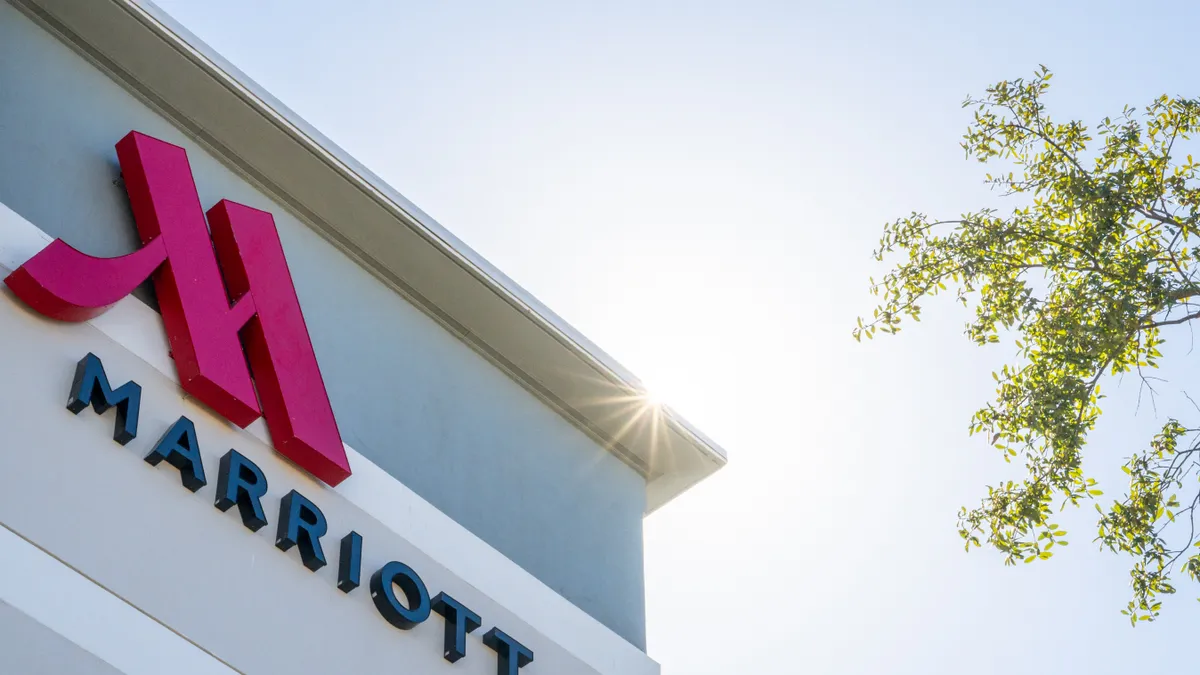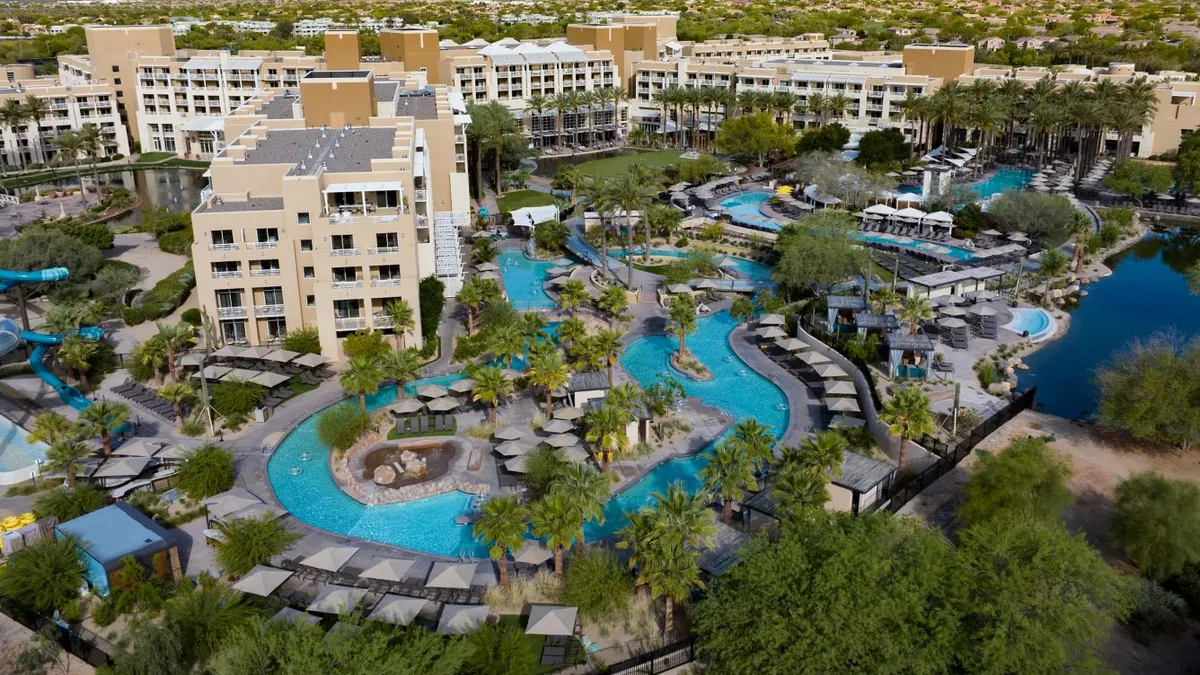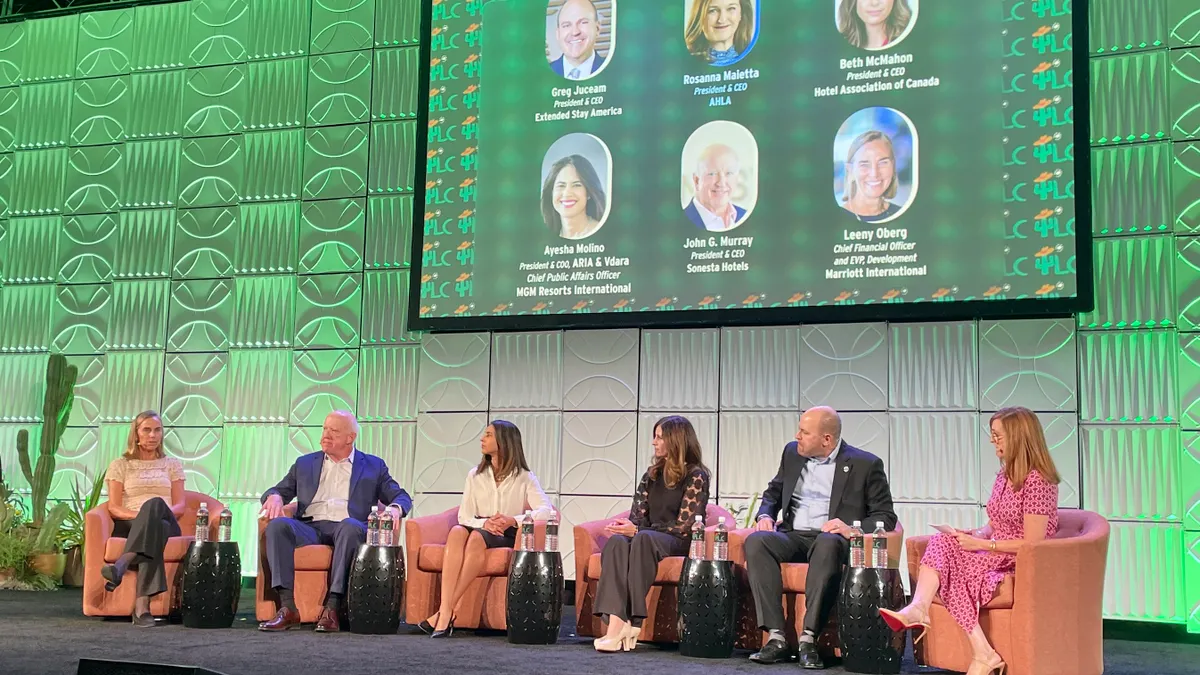UPDATE: March 20, 2024: Chip Rogers announced on LinkedIn Wednesday that he will be starting a new position as Special Advisor at Ervin Graves Strategy Group.
It’s been almost two weeks since William “Chip” Rogers stepped down from his role as president and CEO of the American Hotel & Lodging Association after a five-year tenure.
During his time at the organization’s helm, Rogers lobbied for change in the hotel industry, raised money for noteworthy causes and advocated for — and against — several hotel laws and regulations.
Rogers sat down with Hotel Dive to discuss his time at AHLA, why he’s leaving and what he considers to be some of his greatest achievements as the association’s president and CEO.
He also shared what his successor — whom AHLA is currently searching for — is up against as lingering pandemic-related challenges impact hotels.
This interview has been edited for clarity and brevity.
HOTEL DIVE: Why did you leave AHLA, and what is your next professional endeavor?
CHIP ROGERS: When I came on, AHLA had a lot of building that we needed to do. The organization had been really good at doing federal lobbying, but not much beyond that. In my time, we were able to grow into a significant state and local lobbying team. The staff itself grew from 40 employees to about 93 now, and we were able to bring a lot of the activities in-house, including marketing and communications. We started significant events — from The Hospitality Show all the way down to our smaller On the Road events. We built an incredible team. I think it's the best team in Washington, D.C.
But, I just personally hit a wall with my travel. I had 240 nights on the road last year and well over 200 nights the year before. Everything that I had wanted to accomplish, we had accomplished, the team was in place, and I really physically needed a break. So that was why the decision was made. With respect to where I go next, I'm going to take a little time off and figure out next steps and hopefully be just Washington, D.C.-based.
I love hospitality, and I love the people that are in the industry. I would certainly be open to staying within the industry if the right opportunity came along. But it doesn't necessarily have to be.
What were your greatest achievements as AHLA president and CEO?
One was the success we had during COVID and getting access to over $50 billion of revenue for the industry through advocacy — mainly through the federal government, but also through state [and] local governments. That was really important given that the industry lost about $150 billion during COVID. In many cases those monies really helped keep hotels afloat.
The second thing, that we started right when I got to AHLA, was the No Room for Trafficking campaign, which has now trained over 1.6 million people on how to identify the signs of human trafficking to help stop it. So, that will last a lifetime.
The third thing is beginning to protect the industry at the state and local level and working with our local partners. We had never really done that before, so to build out our team to be able to do that, be able to address state issues instantly and have a lot of success in that area over the last few years, it's something I'm very proud of.
"I love hospitality, and I love the people that are in the industry."

Chip Rogers
Former AHLA President and CEO
I’m also proud of building out the team overall. I leave the association in a much, much, much stronger place than when I started. A lot of great people helped me accomplish that, but I'm very content as to where the team is and what it can do to protect the industry.
What are the biggest challenges facing the hotel industry right now that your successor will need to address?
Legislative challenges will always exist. They'll come in different forms because lawmakers come up with ideas for legislation all the time. We don't know if there's ever going to be another situation like we had during the pandemic where the industry was going to require some financial assistance from the government. Hopefully that never occurs again, but they'll need to be ready if something like that does occur.
Addressing those constantly changing political challenges and advocacy challenges is the thing that AHLA does best, and whoever takes over will continue to need to address those.
How has the hotel industry changed over the past five years?
I think out of necessity the industry had to grapple with the idea of how to provide its services with fewer people because that dynamic of not having enough workers is just not changing. It's gotten slightly better, but the labor force is still not back to where the industry was in 2019. The industry has really done an amazing job of figuring out it can deliver what the guest needs, even with fewer people.
The industry in that respect has changed forever. The positive part of the change caused by the pandemic is that people are mixing business and leisure travel — and that’s here to stay. That is a long-term structural change for the hotel industry that I think is beneficial.
What advice do you have for young people interested in a career in hospitality?
Take advantage. There's still lots of opportunities — enormous holes for people to start a career and move in that career rather quickly. If you're the type of person who likes to travel, wants to see the world in an industry that affords you that opportunity pretty much anywhere you go and wants to make a good living — hotels compensate very well — now's your time. It may not always be like this, but right now, the opportunity to start and advance quickly is better than it's ever been.
What’s the best piece of advice you received while leading AHLA that you will carry with you into your next role?
Build a team. As an organization grows, at some point, no matter how hard you work as the leader of the organization, you can't accomplish it at all. You have to have a good team around you, a team that not only can perform but one that you can trust. That's what I did at AHLA, and wherever I go next I will build up that same type of team.



